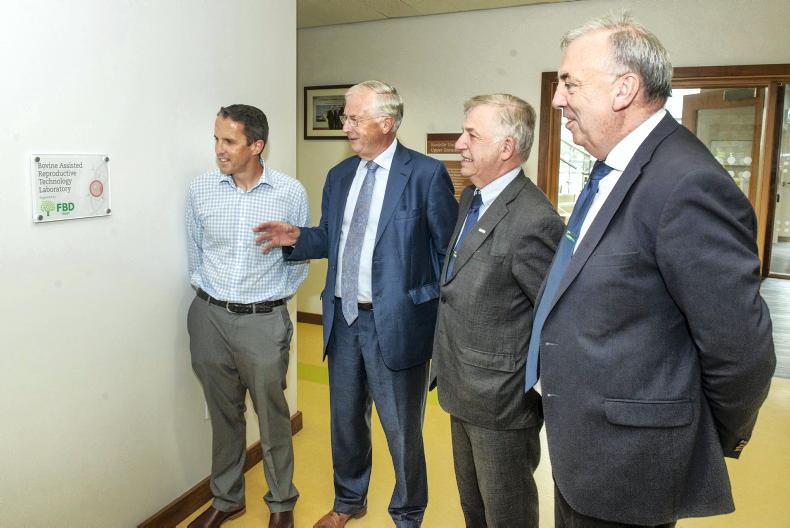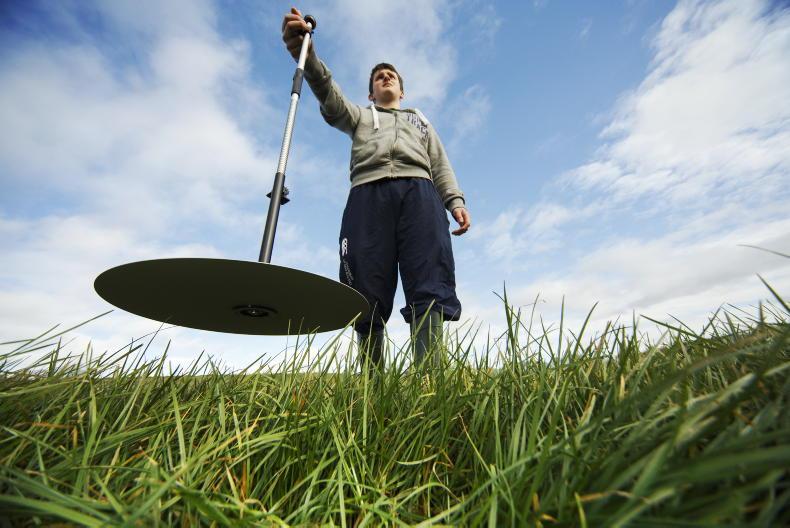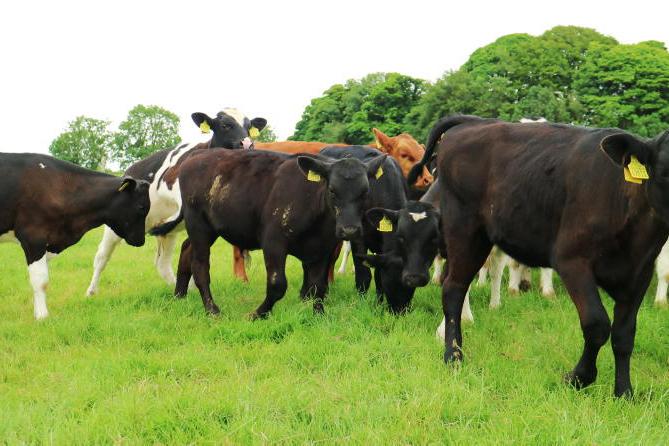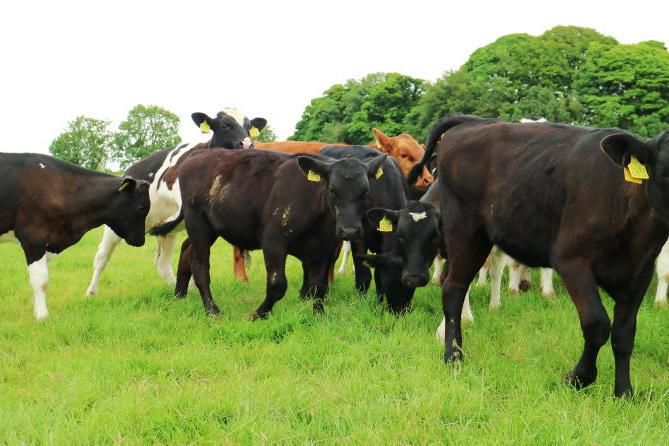The first ever sexed semen lab in Ireland is to open in Moorepark in November.
The main objective of the project is to allow dairy farmers to produce more female dairy calves and reduce the number of male dairy calves through the use of sexed semen.
US-based Sexing Technologies is one of the world leaders in the production of sex sorted semen and will be establishing the lab at Moorepark.
This will be a major breakthrough for Ireland’s AI industry and will be open to all AI companies.
Greater selection
This will result in a greater selection of bulls and bulls of much higher quality (EBI) for farmers to choose from.
Reproductive physiologist at Teagasc Dr Stephen Butler said: “In vitro embryo production involves collection of oocytes from either live donors, in the case of elite genetic merit dams, or from ovaries collected after slaughter in the case of commercial beef embryos.
"In all cases, the oocytes are fertilised and cultured in a lab for seven days before being transferred to a surrogate dam that has been synchronised to be on day seven of her estrous cycle.

The FBD-funded sexed semen lab at Moorepark will open in November 2021.
“Using this technology, an elite genetic merit dam can be scheduled to have oocytes collected weekly for several weeks.
"This would facilitate the dam moving from having one calf per year to having multiple calves per year, and thus increasing the chances of producing a calf with greater genetic merit than the current generation.”
Financial support
FBD Trust will provide €200,000 in the way of financial support over the next four years to help the project get on its feet.
Chair Michael Berkery is confident that the project “will greatly contribute to the sustainability of both the Irish dairy and beef industries”.
Teagasc director Professor Gerry Boyle stated: “Like all the other sectors of our economy, the dairy industry must improve its sustainability credentials.
"Accelerating genetic gain, improving the efficiency of milk and meat production and meeting environmental and animal welfare targets are all simultaneously achievable by embracing the appropriate use of assisted reproductive technologies,” he said.
Head of the animal and grassland research and innovation programme at Teagasc Professor Pat Dillon noted that “the application of these new technologies has great potential for animal breeding, and there is a need to test and validate their performance in Irish grazing systems.
"Teagasc are very grateful for the financial support provided by FBD Trust to support this research.”
Announcing the development, Teagasc said there are three important consequences associated with the future use of sexed semen.
Male dairy calves
The first factor to consider is the marked decline in the number of male dairy calves born.
An effective strategy is required to breed the next generation of elite breeding stock that have the ability to sustain or accelerate genetic improvement (EBI).
The second thing to be mindful of is the lower proportion of dairy cows being inseminated with dairy semen.
There must be more thought put into breeding the next generation of elite beef breeding stock which are suited to a dairy cow-cross that would not be suitable for breeding replacements (measured by improved DBI).
Lastly, we must consider the feasibility of mass producing beef embryos for transfer into dairy dams which are not suited to producing replacements themselves.
This will eliminate calves being born out of dairy dams with poor beef merit and will ensure a crop of beef calves with high economic value being readily marketable to beef farmers.
The first ever sexed semen lab in Ireland is to open in Moorepark in November.
The main objective of the project is to allow dairy farmers to produce more female dairy calves and reduce the number of male dairy calves through the use of sexed semen.
US-based Sexing Technologies is one of the world leaders in the production of sex sorted semen and will be establishing the lab at Moorepark.
This will be a major breakthrough for Ireland’s AI industry and will be open to all AI companies.
Greater selection
This will result in a greater selection of bulls and bulls of much higher quality (EBI) for farmers to choose from.
Reproductive physiologist at Teagasc Dr Stephen Butler said: “In vitro embryo production involves collection of oocytes from either live donors, in the case of elite genetic merit dams, or from ovaries collected after slaughter in the case of commercial beef embryos.
"In all cases, the oocytes are fertilised and cultured in a lab for seven days before being transferred to a surrogate dam that has been synchronised to be on day seven of her estrous cycle.

The FBD-funded sexed semen lab at Moorepark will open in November 2021.
“Using this technology, an elite genetic merit dam can be scheduled to have oocytes collected weekly for several weeks.
"This would facilitate the dam moving from having one calf per year to having multiple calves per year, and thus increasing the chances of producing a calf with greater genetic merit than the current generation.”
Financial support
FBD Trust will provide €200,000 in the way of financial support over the next four years to help the project get on its feet.
Chair Michael Berkery is confident that the project “will greatly contribute to the sustainability of both the Irish dairy and beef industries”.
Teagasc director Professor Gerry Boyle stated: “Like all the other sectors of our economy, the dairy industry must improve its sustainability credentials.
"Accelerating genetic gain, improving the efficiency of milk and meat production and meeting environmental and animal welfare targets are all simultaneously achievable by embracing the appropriate use of assisted reproductive technologies,” he said.
Head of the animal and grassland research and innovation programme at Teagasc Professor Pat Dillon noted that “the application of these new technologies has great potential for animal breeding, and there is a need to test and validate their performance in Irish grazing systems.
"Teagasc are very grateful for the financial support provided by FBD Trust to support this research.”
Announcing the development, Teagasc said there are three important consequences associated with the future use of sexed semen.
Male dairy calves
The first factor to consider is the marked decline in the number of male dairy calves born.
An effective strategy is required to breed the next generation of elite breeding stock that have the ability to sustain or accelerate genetic improvement (EBI).
The second thing to be mindful of is the lower proportion of dairy cows being inseminated with dairy semen.
There must be more thought put into breeding the next generation of elite beef breeding stock which are suited to a dairy cow-cross that would not be suitable for breeding replacements (measured by improved DBI).
Lastly, we must consider the feasibility of mass producing beef embryos for transfer into dairy dams which are not suited to producing replacements themselves.
This will eliminate calves being born out of dairy dams with poor beef merit and will ensure a crop of beef calves with high economic value being readily marketable to beef farmers.










SHARING OPTIONS